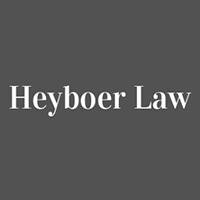 Clifford Workout Lawyers, Michigan
Clifford Workout Lawyers, Michigan
Sponsored Law Firm
-
 x
x

Click For More Info:
-
Marrs & Terry, PLLC
6553 Jackson Road Ann Arbor, MI 48103» view mapBankruptcy & Debt Personalized, Efficient Counsel
Marrs & Terry, PLLC have been helping individuals face a variety of legal challenges, including bankruptcy, estate planning and administration, and family law.
800-862-7221
Not enough matches for Clifford Workout lawyer.
Below are all Clifford Bankruptcy & Debt lawyers.
Sponsored Lawyers
1-10 of 28 matches
Criminal, DUI-DWI, Bankruptcy & Debt, Personal Injury, Real Estate
When you've been arrested and facing criminal charges, there can be serious consequences for you and your family. Don't face your criminal charges alone - the committed attorneys at Heyboer Law have your back. We'll aggressively fight for you to get your life back. If you've been arrested for DUI or falsely accused of a sex crime, work with an attorney who'll work hard to fight for your rights and freedom. Our law practice areas include civil, bankruptcy, family law, and personal injury. Call us today to schedule an appointment.
(more)




 Tricia Terry Ann Arbor, MI
Tricia Terry Ann Arbor, MI AboutExperienced Michigan Lawyer
AboutExperienced Michigan Lawyer Articles
Articles

